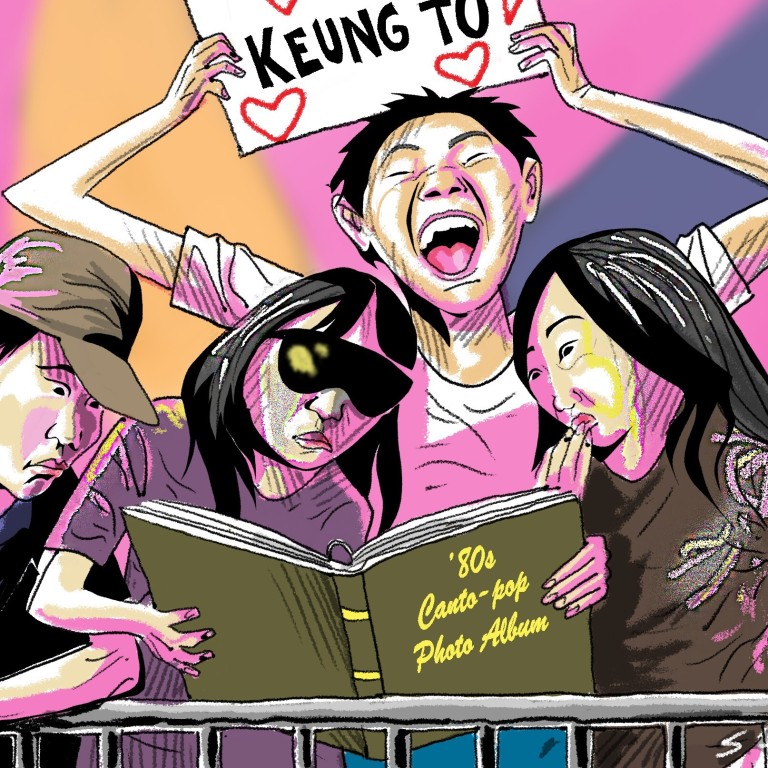
Canto-pop has a future, it’s Hong Kong fans who are stuck in the past
- The recent debate over the emergence of pop star Keung To is the first time in years Canto-pop has been talked about. Local music is integral to Hong Kong culture, and we should be glad young people are still pursuing their Canto-pop dreams
“Who is Keung To?” has easily become one of the most asked questions among Hongkongers since January 1, when the singer and member of the 12-piece boy band, Mirror, became the youngest person to win two coveted prizes, “My Favourite Male Singer” and “My Favourite Song”, at Commercial Radio’s Ultimate Song Chart Awards.
His bandmates, Jeremy Lau and Anson Lo, won the gold and bronze prizes for best newcomer, and the band also received one of the top 10 song awards.
Fans of Keung, who call themselves “ginger candies”, were delighted by his success; “there’s no justice if Keung To isn’t famous” was a common refrain.
Meanwhile, haters wondered how a kid who has been on the local pop scene all of two years after winning the ViuTV reality show King Maker – and who is obviously not the best singer around – could bag the top prizes at the most respected music awards show in Hong Kong.
Many compared these young idols with the pop kings and queens of the past, and found the kids lacking in star quality. Some even said Hong Kong’s pop scene was dead. But, really, it has been a long time since anyone in Hong Kong cared to talk about local pop music.
I had to consult my mother, the cultural critic I respect the most. “You should not apply the same standards to today’s young singers as you would to Eason Chan. You need to move on,” she said, admitting that she has been secretly following the King Maker series. I nearly fell off my chair. “Give these young people a chance.”
Hong Kong’s creative side flourishes amid economic gloom for art market
The 2020s is a new era that belongs to a young generation of pop stars, rather than those who are stuck in the past reminiscing about past glories.
I hit the TV archives, starting with the first season of King Maker from 2018 where Keung, then 19, competed with the other boys who would eventually become Mirror.
I even thought these boys were nothing more than a Hong Kong replica of a K-pop group. But a few episodes in – and all the way to the third season that concluded in December 2020 – I was ashamed of just how much I had been blinded by my pride and prejudice.
Dynamite and an ARMY: how K-pop’s BTS invaded the US billboard charts
The formula of the show might have been inspired by productions outside Hong Kong: there was no lack of emotional scenes, of course, and the excellent editing and the hilarious yet judgmental voice-over created the dramatic tension necessary for great entertainment.
But it was the young contestants – not just Keung but everyone who performed – who were the real stars. Aspiring home-grown performers poured their heart and soul into their singing, dancing and drama performances under the guidance of celebrity mentors.
Some even performed original songs they had written and dance moves they had choreographed. They may be far from perfect, but these are young people trying their best to achieve their potential, hoping to be seen and heard.
Yet, it seems so many are choosing to look the other way. In response, a group of young and seasoned musicians have just this week released a moving ballad, The Pop Scene is Dead. The independently produced song asks: “Why are you so bitter? Looking down … abandoning this generation. I ask you not to compare. I give you this cassette player for you to listen to your good old days.”
The song’s message is clear: notions about the death of Hong Kong’s pop scene are common, but also wrong. We still have young talent in the Hong Kong pool, a lot of them, and comparing them needlessly with their predecessors does no good for the future.
The recent heated discussions have at least drawn people’s attention back to Hong Kong’s pop scene, years after it lost ground to K-pop. Hong Kong needs home-grown pop idols and musicians because they are an integral part of Hong Kong culture, and we should be heartened by the fact that there are still young people in our midst who are willing to pursue their dreams.
Let the young generation define themselves on their own terms. And onlookers, especially those who still prefer the faded glory of the past, must hear them out first before judging them by their outdated standards.
Vivienne Chow is a Hong Kong-based journalist and critic specialising in art and cultural affairs. She is the founder of Cultural Journalism Campus

